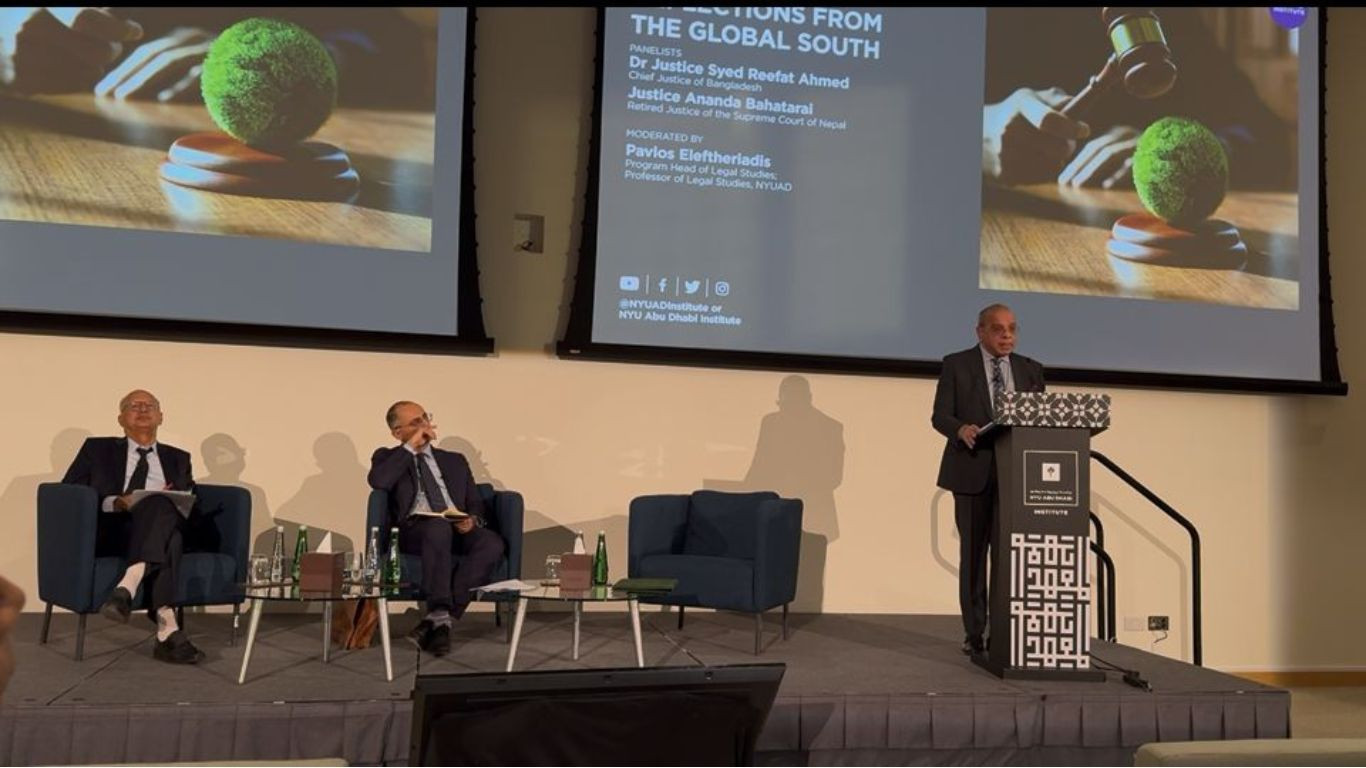Staff Correspondent
Published:2025-04-29 21:23:56 BdST
CJ underscores climate justice imperatives at NYU Abu Dhabi
Bangladesh’s Chief Justice Syed Refaat Ahmed on Monday highlighted the constitutional urgency of climate justice.
He said this while delivering a keynote lecture at New York University Abu Dhabi titled "Climate Justice and the Constitution: Reflections from the Global South."
The lecture drew an international audience of jurists, academics, legal practitioners, and students, offering a powerful examination of the links between constitutionalism, human rights, and environmental protection—particularly from the perspective of climate-vulnerable countries like Bangladesh.
Moderated by Pavlos Eleftheriadis, Professor of Legal Studies at NYU Abu Dhabi, the session focused on the evolving discourse of climate justice, tracing its roots from environmental justice movements in the United States to global frameworks such as the People's Agreement of Cochabamba and the Universal Declaration of the Rights of Mother Earth.
Justice Refaat Ahmed described the climate crisis as not only a planetary emergency but also a crisis of justice. He emphasised the disproportionate impact of climate change on developing nations, despite their minimal historical contribution to global emissions.
Referring to Bangladesh’s constitutional framework, he underscored the country’s commitment to environmental protection. He cited several landmark judgments—including his own rulings in public interest litigation cases—where the judiciary has upheld environmental rights as part of fundamental human rights, particularly in sectors such as ship-breaking and hazardous industries.
Placing Bangladesh’s environmental jurisprudence within a broader global context, he drew parallels with constitutional practices in countries such as Argentina, Vietnam and South Africa, where ecological concerns are increasingly gaining legal ground.
The Chief Justice also addressed structural limitations of global agreements such as the Paris Accord, calling for stronger legal and financial mechanisms to support climate-vulnerable nations. He highlighted the need to recognise climate-induced displacement as a human rights issue, urging the development of legal standards that secure the rights to life, shelter and livelihood for affected populations.
Calling for a shift toward eco-centric constitutionalism, he advocated for global accountability through fiduciary duties placed upon major polluters.
Justice Ahmed ended with a call to action, urging institutions like NYU Abu Dhabi to inspire a new generation of lawyers committed to ecological sustainability. "Climate justice is no longer a deferred ideal—it is a constitutional imperative," he said.
The address received strong appreciation from attendees and prompted a lively exchange of ideas on future directions in environmental law and climate justice.
Unauthorized use or reproduction of The Finance Today content for commercial purposes is strictly prohibited.


